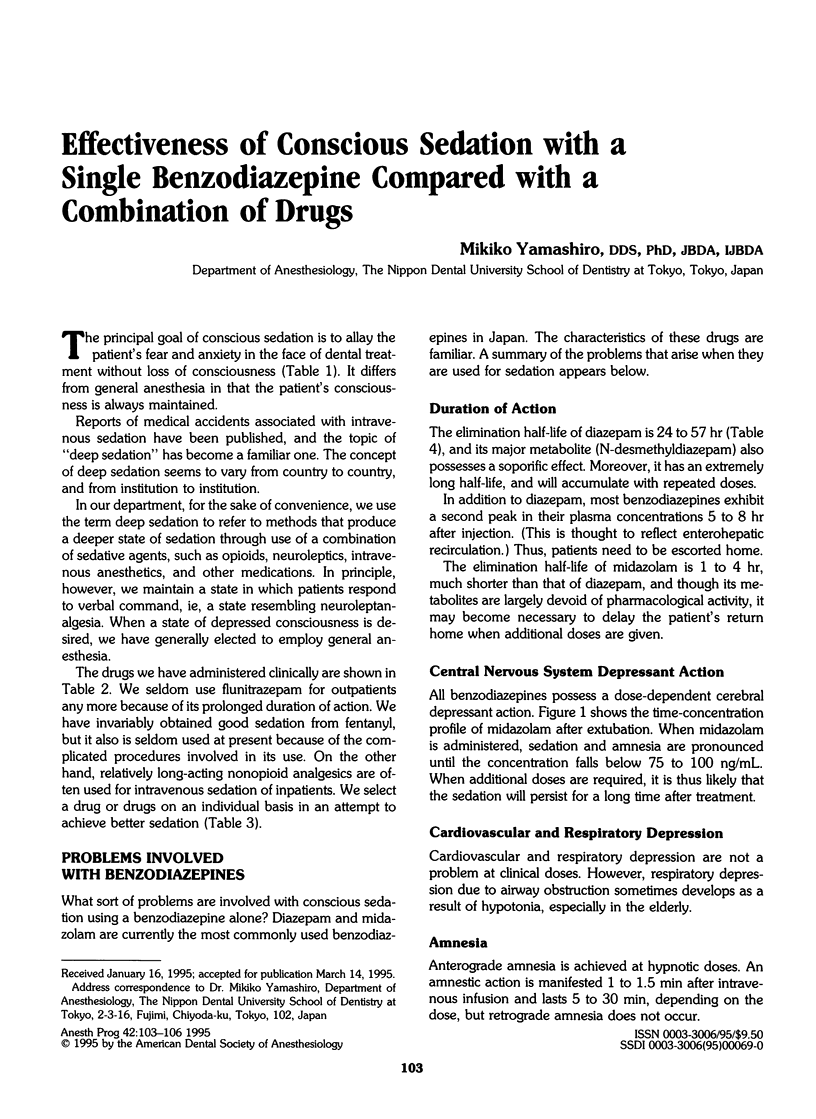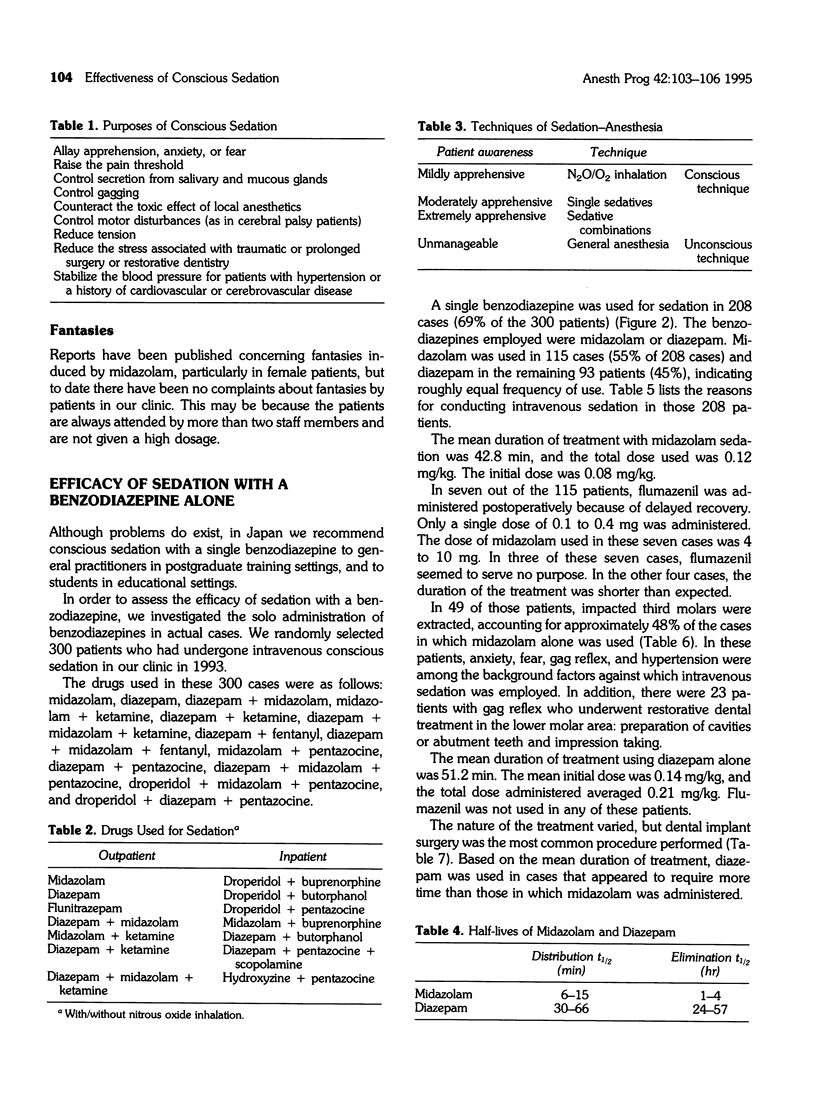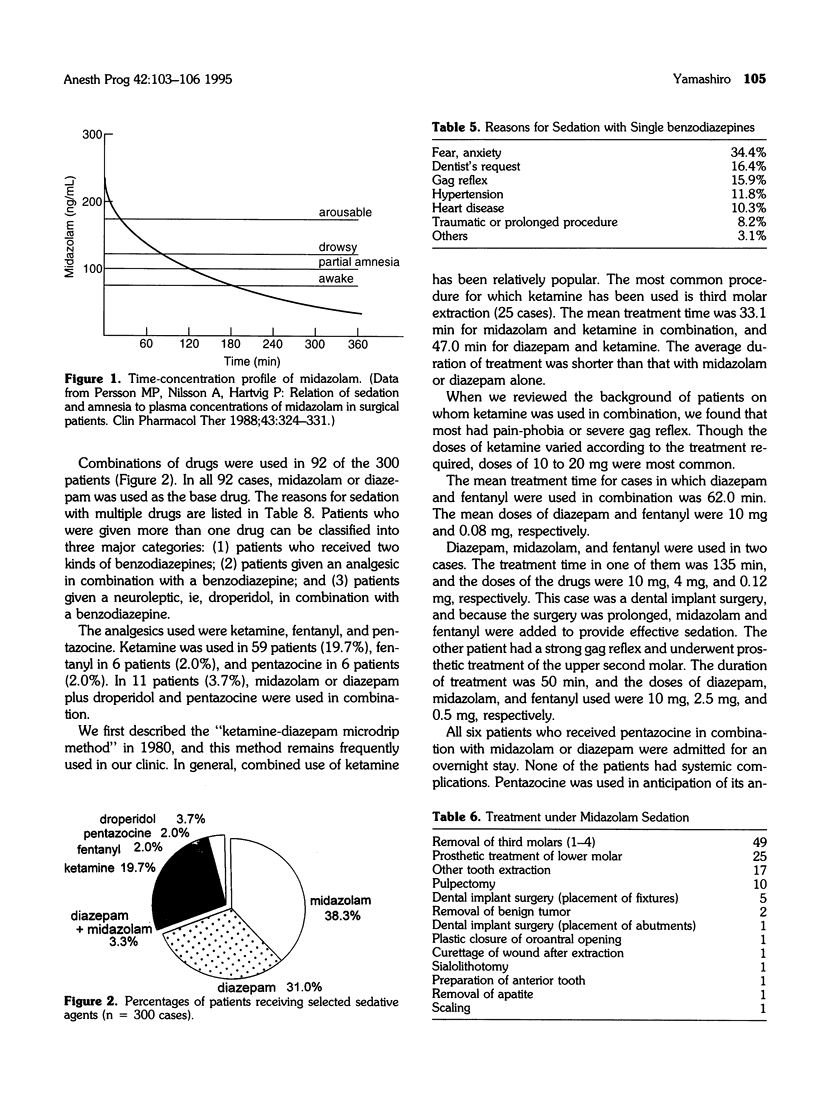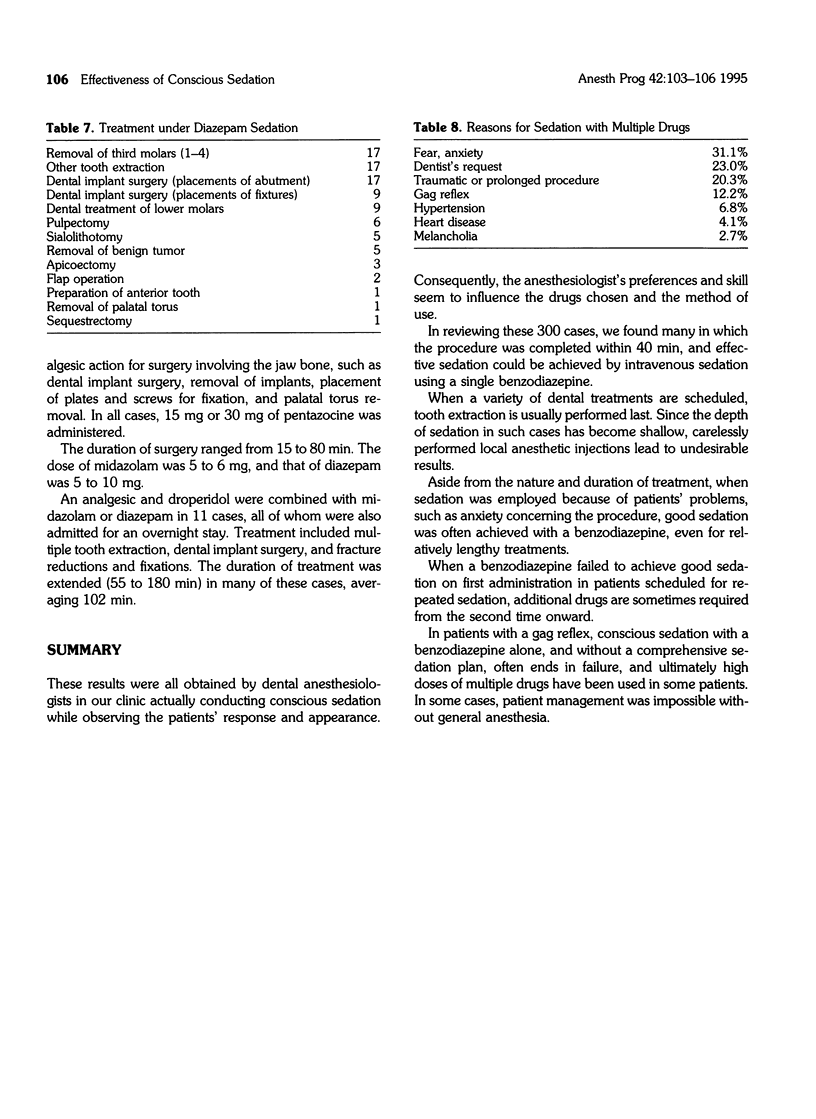Abstract
These results were all obtained by dental anesthesiologists in our clinic actually conducting conscious sedation while observing the patients' response and appearance. Consequently, the anesthesiologist's preferences and skill seem to influence the drugs chosen and the method of use. In reviewing these 300 cases, we found many in which the procedure was completed within 40 min, and effective sedation could be achieved by intravenous sedation using a single benzodiazepine. When a variety of dental treatments are scheduled, tooth extraction is usually performed last. Since the depth of sedation in such cases has become shallow, carelessly performed local anesthetic injections lead to undesirable results. Aside from the nature and duration of treatment, when sedation was employed because of patients' problems, such as anxiety concerning the procedure, good sedation was often achieved with a benzodiazepine, even for relatively lengthy treatments. When a benzodiazepine failed to achieve good sedation on first administration in patients scheduled for repeated sedation, additional drugs are sometimes required from the second time onward. In patients with a gag reflex, conscious sedation with a benzodiazepine alone, and without a comprehensive sedation plan, often ends in failure, and ultimately high doses of multiple drugs have been used in some patients. In some cases, patient management was impossible without general anesthesia.
Full text
PDF



Selected References
These references are in PubMed. This may not be the complete list of references from this article.
- Persson M. P., Nilsson A., Hartvig P. Relation of sedation and amnesia to plasma concentrations of midazolam in surgical patients. Clin Pharmacol Ther. 1988 Mar;43(3):324–331. doi: 10.1038/clpt.1988.39. [DOI] [PubMed] [Google Scholar]


